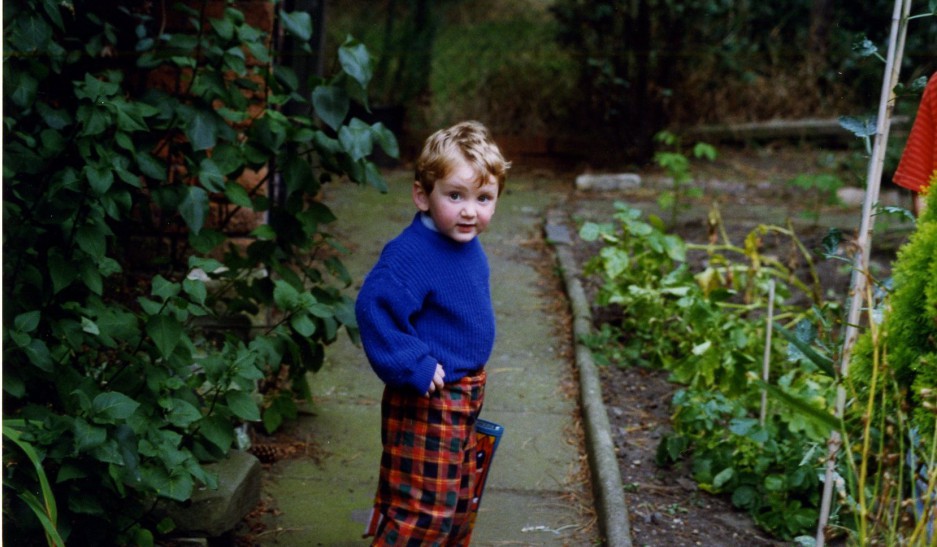Hi everybody. This week, Peter Fleming has written for us about his experiences with ghosts and the unexplained to mark Halloween. Read if you dare.
Boo!
Ha ha! Only pulling your legs, my friends! It’s me! Peter!
Viewers of Sprites of the Forest (1970) or The Stone Boy (1967) will be familiar with the fact that I enjoy a good ghost story, but what they may not realise is the number of encounters I have had before and since those programmes with ghostly presences in my own life.
I can recall vividly the terror I felt at my first ‘ghost’, an evil spectre which towered at the top of the stairs of the children’s home where I lived, its hideous, unearthly call echoing down the hallway. Turned out to be the shadow of one of the matrons, who enjoyed improvising on her slide-whistle on the landing long into the night to amuse herself, but the unparalleled fright that gripped me then still grips me today. (This is also why I’ve never been able to watch an episode of Clangers without screaming.)
Catharsis was the watchword when I used this memory to inspire The Ghost at No. 24 (1969), and we enlisted the help of Brian Hodgson and Delia Derbyshire at the BBC Radiophonic Workshop to create the sound of the Spectral Child, along with a Theremin player who charged so much money that in the end we couldn’t afford to record any pictures. And with the dialogue so sparse the whole thing made absolutely no sense. Had to put it out as a Radiophonic Workshop LP in the end. Not what I’d hoped for, although I did get paid as a session musician for bumping into Delia Derbyshire’s green lampshade in the middle of a take.
More successful was 1972’s Creak!, which I believe remains the only television programme ever to have successfully captured a real ghost on camera! The infamous shot occurred in episode 3, during a sequence filmed at the Stargroves estate (thanks once again to Mick Jagger for being so generous with the use of his house!). The camera followed our main actor round a corner, and there, down the corridor, was the figure of a man. Haggard and gaunt, he looked right down the lens, gasped, turned and ran away. Never seen such a frightening face in all my life.
These days, people there at the time try to rationalise it. ‘There’s no reason to believe it was a ghost, Peter – it might have been Keith Richards or someone,’ they’d say, or, ‘No, Peter, really, it looks exactly like Keith Richards,’ or, ‘Sorry I messed up that shot, Mr Fleming. Let me make it up to you with this signed copy of our new record, Exile on Main St,’ but with the episode missing from the BBC archive, I suppose we’ll never know for sure!
That’s not for want of trying, mind you. Left no stone unturned with my search for copies of that one, the memory really disturbed me. Searched all over the place for a film recording, or even paperwork in TV Centre. No luck there, of course; all the paperwork in TV Centre has been knocked down for flats (such was the scale of BBC bureaucracy that that did create a surprisingly large amount of space). Tried the BBC’s archive facility in Perivale too, but all I managed to do there was start a small fire and burn several newly returned episodes of Doctor Who. Luckily no announcement had been made, so fans didn’t have to face the disappointment of not being able to enjoy Patrick Troughton’s first appearance after all!
Yes, there’s sadly little chance I’ll ever find real confirmation of that little encounter with the beyond. But I still find myself making similar contact with other realms even today. Only a few months ago, I found myself the custodian of an old mask, haunted by none other than Geoffrey, Zippy and George from Rainbow! It came into my possession after an unfortunate incident at the National Science and Media Museum in Bradford, in which I mistook the mask for a prop from Mr Hildebrand’s Many Faces (1973). As a result, I was mistaken for stealing something that wasn’t mine, which it turned out I was, but I didn’t realise that until it was too late.
Fortunately, the culture sector in this country is so badly underfunded, the only security guard there was older than me and had to stop to catch his breath and call an ambulance mere seconds into our chase! Consequently, I finally have company on my raft after years of travelling alone. Trouble is they’ve all grown rather tiresome the last few weeks, always bickering over whose spirit is taking up the most room in one cheek or another, and they always patch things up by singing the theme from Rainbow together over and over again. I wouldn’t mind, but Zippy’s always about a semitone out from the other two, makes it nigh on impossible to sleep at night.
As you can see, my friends, the possibility that we might be contacted from realms outside our own cosy little world is always there. But I ask that you think on the account of my current situation and ask yourself: mightn’t it be better to leave well alone?
Best wishes,
Peter










